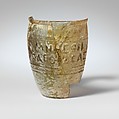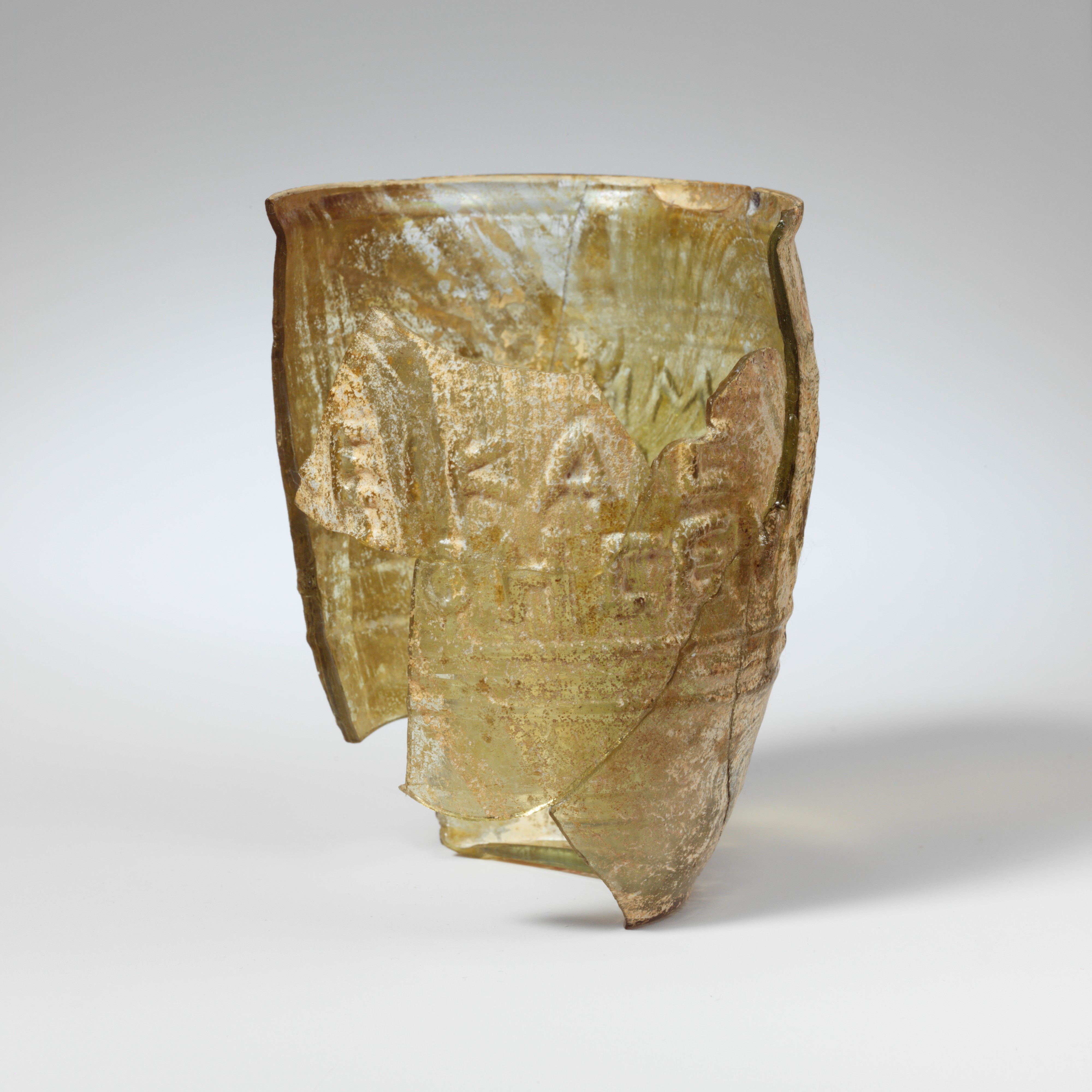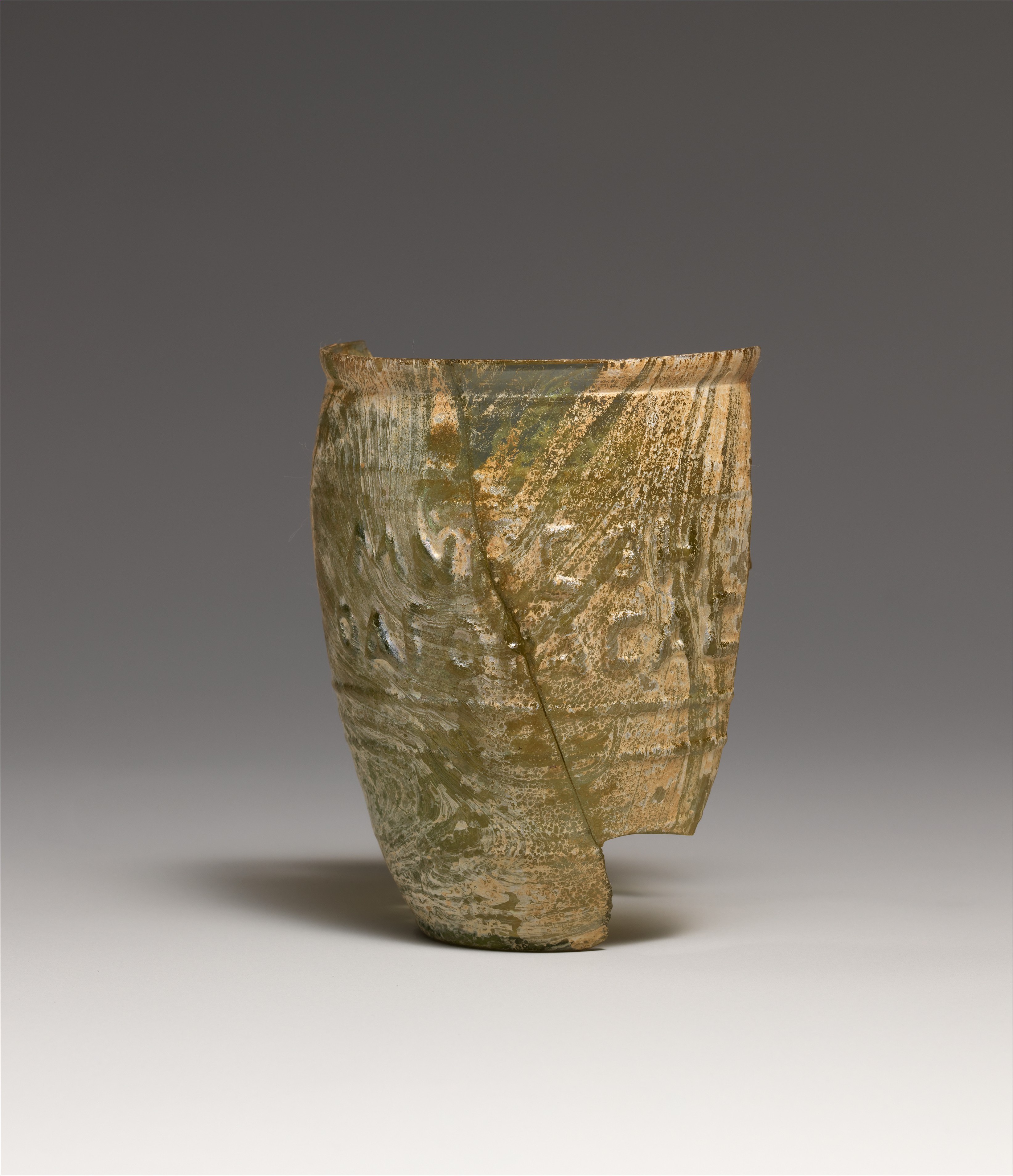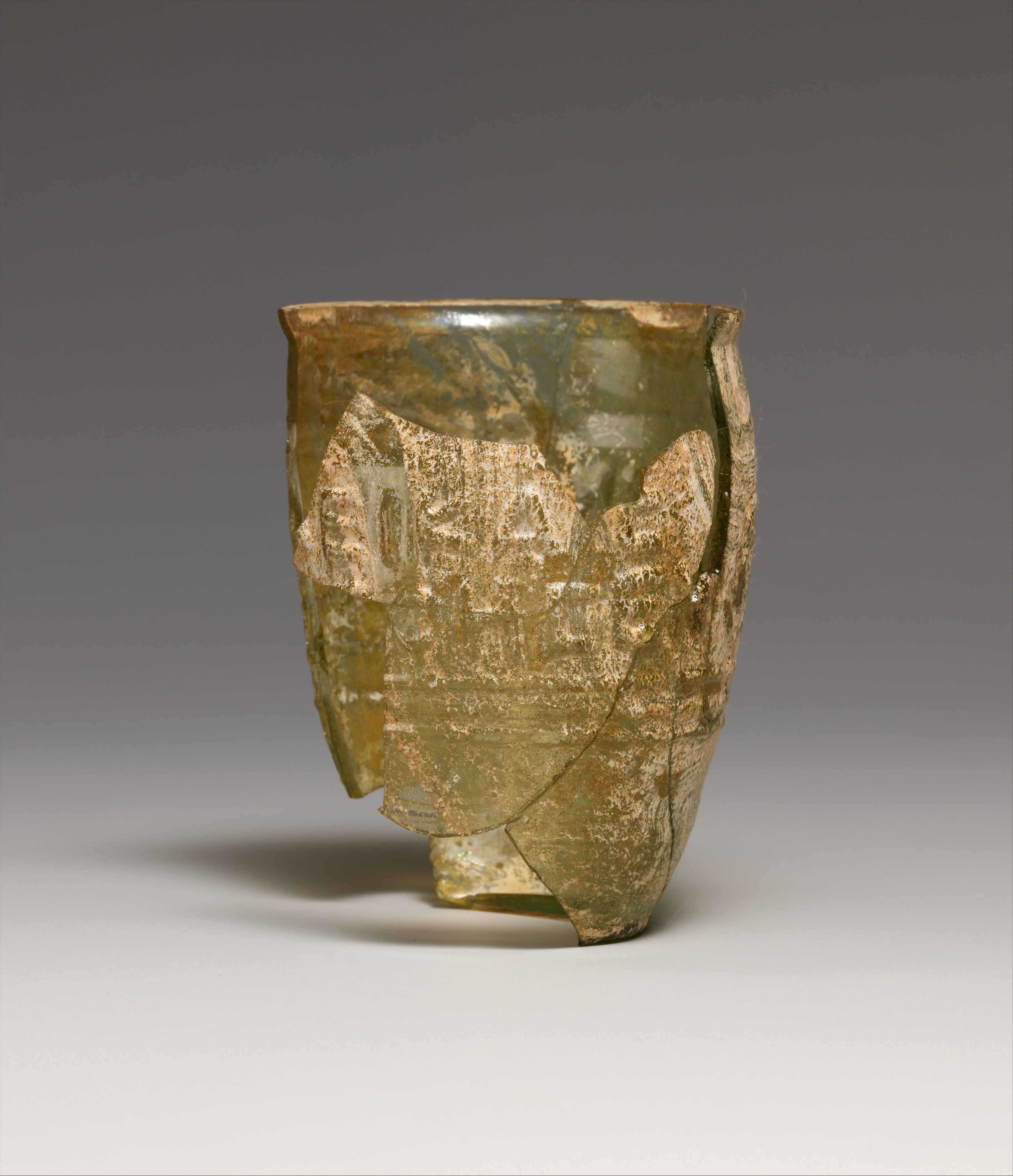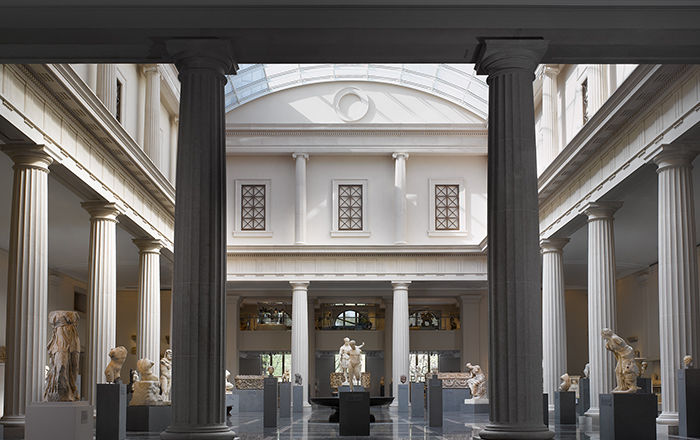Glass beaker signed by Neikais
Translucent light green.
Outsplayed knocked-off rim with indent below; body with convex sides, tapering downwards; flat bottom with projecting rounded edge.
Three-part mold with two vertical sections joined to cup-shaped bottom section, forming decoration in relief on sides; two horizontal ridges above central frieze containing two Greek inscriptions, each in two lines and divided vertically by a stylized palm frond; below frieze, three more horizontal ridges; near bottom on cup section of mold, two more horizontal ridges.
Broken and repaired, with approximately one-third missing including most of bottom; blowing striations but few bubbles; dulling and brilliant iridescent weathering on exterior, and patches of creamy brown weathering and iridescence on interior.
The inscriptions read "Neikais made (me/it)" on one side and "May the buyer be remembered" on the other.
Only four other beakers signed by Neikais are known. One of these is a fragment excavated at Masada in the Jewish zealot stronghold that was besieged and finally captured by the Romans in A.D. 73/4. Neikais is a rarely found variant of the Greek name Nikias or Nikaios and could be used for women as well as men. It has therefore been suggested that Neikais should be identified as the earliest known female glassblower.
Due to rights restrictions, this image cannot be enlarged, viewed at full screen, or downloaded.
This artwork is meant to be viewed from right to left. Scroll left to view more.
